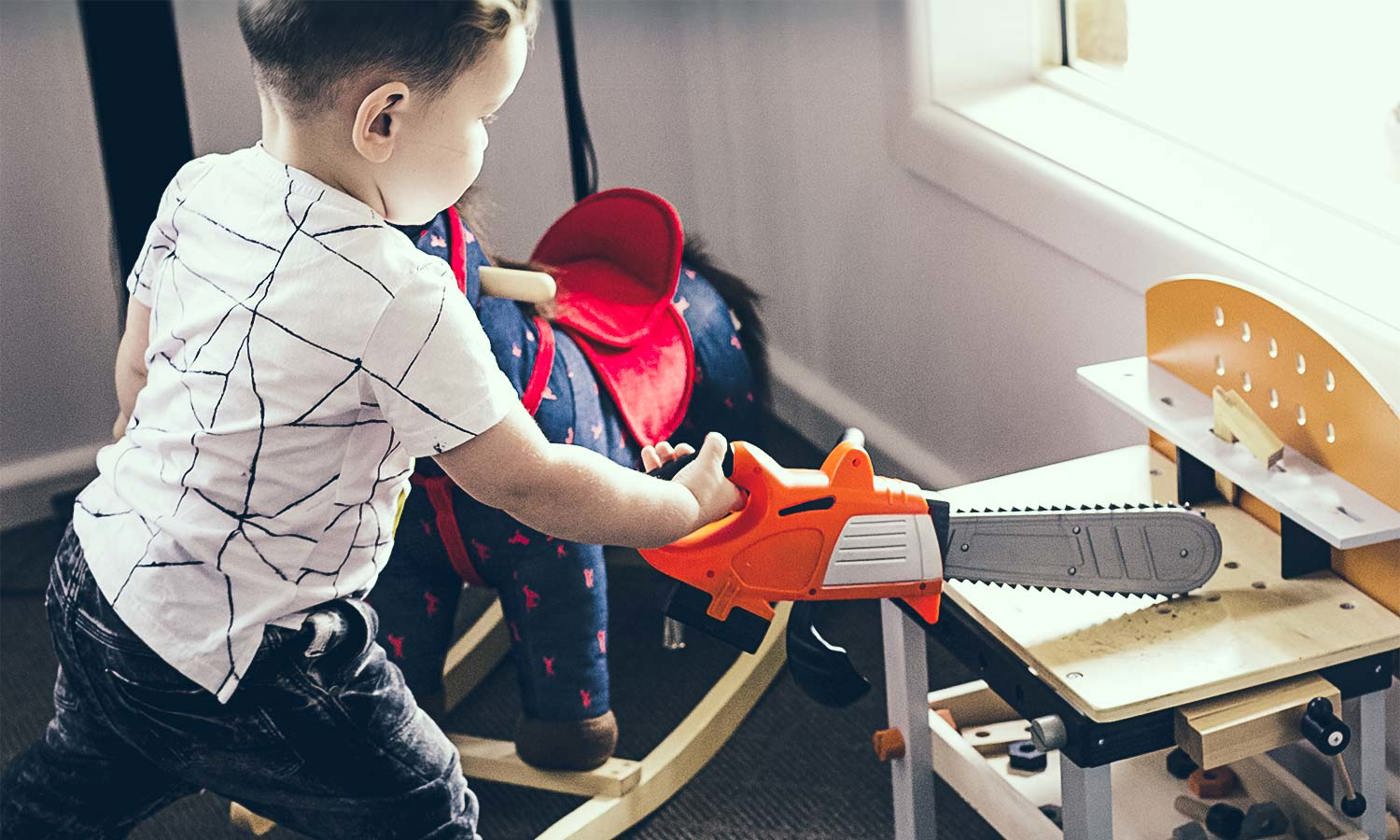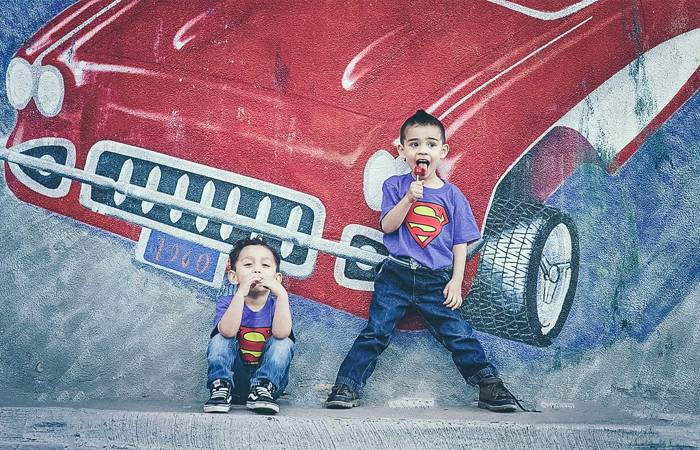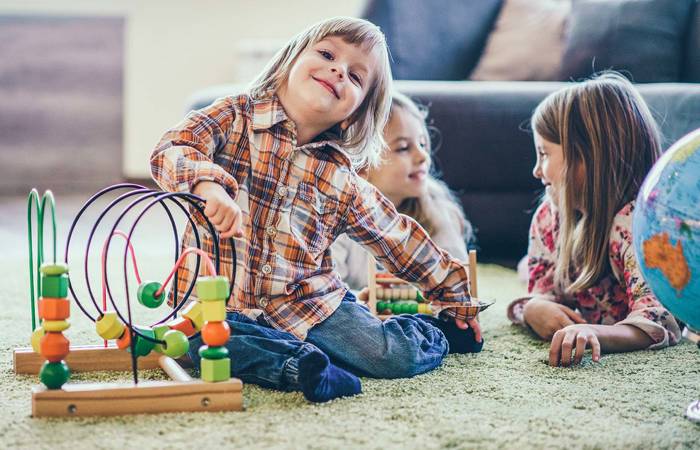Like what you see?
Sign up to receive more free parenting advice.
Thank you for subscribing to our newsletter!
Early Learning

It's one of the best parts of being a kid: knowing that, with little more than some haphazardly pieced together dress-up garb and your imagination, you can be whoever and whatever you want to be.
No limits. No disappointments. Just dreams and aspirations and imagination.
But behind this most treasured of childhood rituals is a science and a psychology which makes it even better.
"It releases the imagination," says Dr Louise Phillips, University of Queensland Early Years and Arts lecturer.
"It is such an important capability to have… to be able to perform and tell a story; or to play out the sketch of a story or setting."
Dr Phillips says the explosion of mobile and hand-held device use among children in the early years age group further heightened the need to facilitate the development of imagination and play in children.
"Technology and these devices are there constantly now. There is 24-hour access and unlike when we were growing up, and didn't have the agency to move a TV and even had to get up to change the channels, it is with us everywhere we go.
"We need to nurture imagination and role-playing in our children more than ever. And parents need to encourage this in every part of life; in everything they do."
Play, reading, conversation – the simplest things – can be daunting to time poor parents. But the key, Dr Phillips says, is keeping it simple.
"Even the shopping list can be a role-play activity.
"Children will pretend and make believe. They will copy what their parents do and even the most mundane of those things can be fun and exciting for children because it's what they see as being part of being a grown up.
"Children will play at cooking dinner, going to the doctors and other real-life activities.
"Through role-play they will see what it feels like to do these activities. They are learning and broadening their overall understanding."
Professor of Education in the Learning Sciences Institute of Australia, Australian Catholic University, Professor Susan Edwards agrees.
Professor Edwards says this kind of role-playing and play-based learning is foundational, creating a sturdy base for every facet of a child's development.
"This is the way a child meets the world," she says.
"It is the way they go on to experience and make sense of their environment and the world around them.
"Through open-ended play and role-playing children are using their imagination to draw on the resources of the world, to respond to what's happening around them and make their own representation about where they fit and how they see something playing out."
So what are the most important benefits of role-play?
"This is such an important part of growth, learning and development," Professor Edwards says.
"The best way to approach early learning is through open-ended play, in other words, just let the children role-play, explore and have no set outcomes. Let them direct the play and the outcome."
We need to nurture imagination and role-playing in our children more than ever. And parents need to encourage this in every part of life; in everything they do.Dr Louise Phillips
Dr Phillips outlines several key benefits of role play and dress-ups:
- Language and Vocabulary Development
When children role-play they are taking themselves beyond their usual surrounds and environment and imagining a whole new context. This bring out new words and can help more grown-up conversation. This is even more effective when parents, educators and other adults join the game. The development of pitches and tone in voice and conveying messages through words and delivery is also an important element. - Communication Development
Communication is more than just words and language. Dr Phillips says as a generation we are becoming less aware of body language and non-verbal communication cues, mainly because of our heavy use of devices. Role-playing is, essentially, acting. That means the non-verbal communication, the mannerisms, the actions, the expressions are all part of the story telling. - Problem solving
With role-playing there are often challenges and situations which arise, reflecting real life or what a child imagines might arise in that context. That enables children to take what they have seen and learned, through experience or observation, and apply it in the context of the role-play. It also encourages the use of imagination and creativity to find solutions which might not necessarily be the most obvious or clearly apparent. - Real World Understanding
Role-play enables children to take real world situations they have seen and break them down, processing them in a way which makes sense. Often, children will play in a manner which mirrors what they have seen their parents doing, or what they have seen in a shop, restaurant, doctor’s surgery, park or other setting. - Socialisation
Through role-play, children have the chance to develop an understanding of the various roles in our society and where and how they fit in relation to them, their families and their immediate network. When this play is in the company of an engaged adult, this is further enhanced and a stronger understanding ensues. It is also a key element in the development of understanding and empathy in children so that they are better able to put themselves in that position and relate more readily. - Goal Setting
It's through role-playing and dress ups that children can make their first "what I'm going to be when I grow up" decisions. They could be a fire fighter or a movie star, an astronaut or a doctor, a teacher or a veterinarian. There are no limits. And there are no excuses or dampening nay-sayers. At that time, in that moment, children can be everything and anything they want to be. - Tolerance and Understanding
There is a strong link between the amount a child reads or is read to, and their level of empathy, and the same is true for role-playing. Children who explore the worlds and lives of others and seek out an understanding about how the world works and why people do what they do, are more likely to have a tolerance for things they don't immediately understand. They will seek out answers and accept difference. - Stronger Connections
Parents, carers or educators getting involved in role-playing can be a powerful means of getting to know children better and understand their strengths, and to discover a child’s likes and dislikes and their fears or concerns. It is a great way of connecting with a child on their level, while they are safe and engaged in a meaningful and effective play activity.
In the end, whatever the role-play, pretend, make believe or dress up activity, it's a valuable piece of kit for a child to have developmentally.
And Dr Phillips's advice?
"Don't limit them," she says.
"Don't be afraid to go well beyond the usual role-playing. Take them out of the kitchen, the doctors surgery, the classroom. Encourage them to go to a travel agent, or a TV studio, a pet shop… there are endless opportunities."
Get Advice
Real parents. Real problems. We’re here with a group of leading early learning and parenting professionals to answer your questions.






